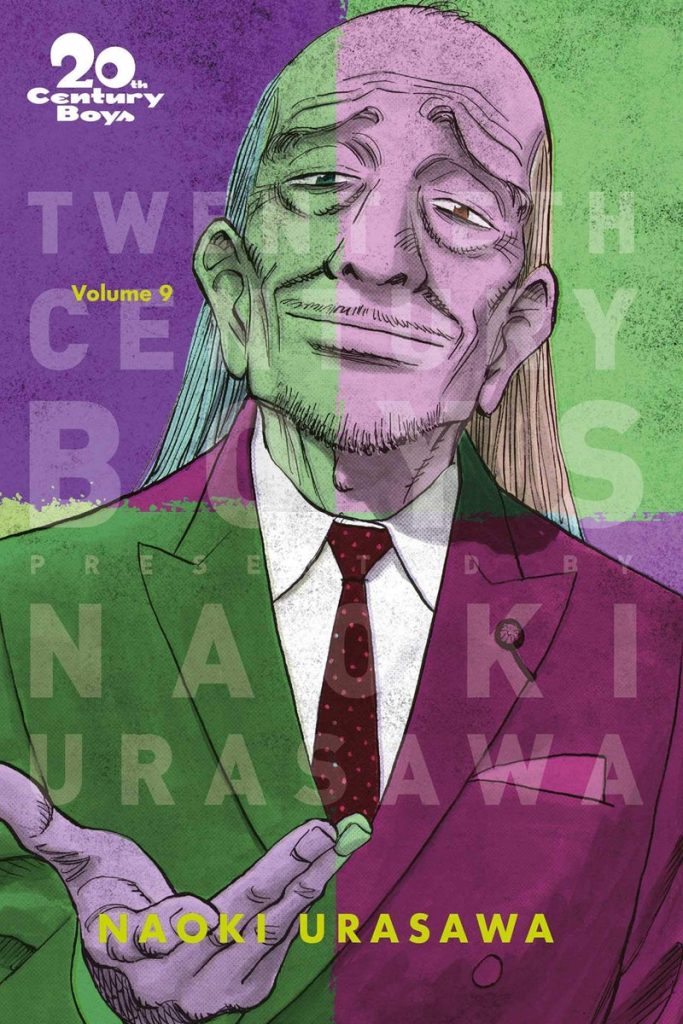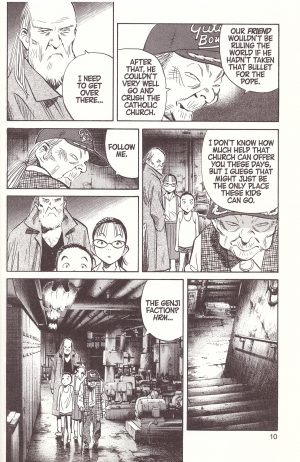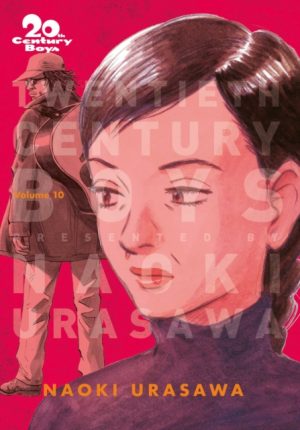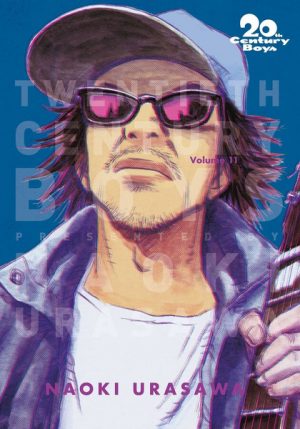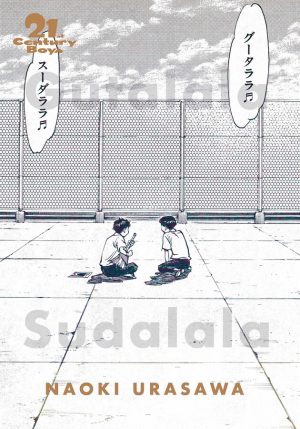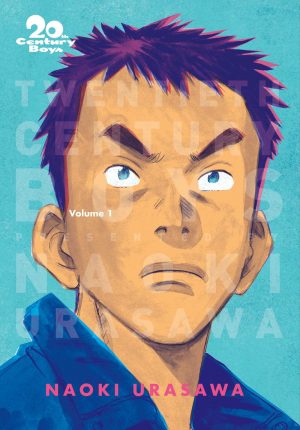Review by Ian Keogh
Doesn’t that look like a portrait of such a kindly, welcoming older man on the cover? Yet Manjome has actively supported Friend since the early days, so can he now be trusted when claiming to have changed his mind?
During the course of 20th Century Boys Naoki Urasawa has three times jumped the present day narrative forward, and as of Perfect Edition 8 we’re now an undefined period ahead of 2015, with Japan cemented under the control of the Friends organisation. They’ve managed to turn a succession of devastating circumstances to their advantage, and a plague they let loose has become an effective means of controlling the population. That’s fine if you’re among the privileged and consenting living in protected walled-off areas of the city, and in what’s a grim echo of real times after Urasawa completed his epic, vaccines are restricted, dangled as rewards.
To begin with the only member of the primary cast seen in this new era is Otcho, but Urasawa gradually has us catch up with other familiar faces, most still attempting to subvert the new status quo. It’s necessary as Otcho believes that having followed the childhood fantasies he and his friends created decades earlier, Friend intends to see them through to an end that destroys the planet. What was originally published in English as Cross-Counter is hardly a cheerful selection of chapters, but exemplary in the unsentimental display of how deprived people will be at each other’s throats when resources become scarce. Urasawa seems to divide humanity into those who’ll willingly exploit others, and those who’ll stand up for the greater good.
Despite that, though, 20th Century Boys is a largely optimistic series, and frequently reinforces that artistic creativity in several forms, here primarily music, can be inspirational. At the halfway point Urasawa supplies a real punch the air moment. Just who is that mysterious singer calling himself Yabuki Joe? The brilliance is that Urasawa leaves room for doubt, and he’s such a skilled plotter, nothing can be taken for granted. Yabuki Joe certainly could be an older looking version of Kenji, and he’s singing Kenji’s songs, but Kenji has been among the missing for so long, so can it really be him? And if so, why has he left Kanna alone to fend for herself? Like so much about 20th Century Boys, when Urasawa provides an answer, it just raises more questions.
In the chapters first collected as Everybody’s Song we see Kanna has continued her covert revolutionary activities, and her relationship with Tokyo gang leaders again comes into play, but she’s cast as rather a tragic character. She knows a statement is needed to rally people, and that statement could mean her becoming a martyr. Will anyone be able to talk her out of it? A success of the entire series is how the surprises are dropped, yet they’re also extremely well considered, so many depending on what we know of someone’s personality, in Kanna’s case her stubborn determination.
The deeper into this volume we delve, the more it seems that Otcho’s correct and Friend is intending to destroy the world, constructing a devastating weapon under the guise of protecting Earth from an alien invasion. That threat is kept hanging, and Friend himself, somewhat sidelined through these pages, is definitively returned for the final chapter revelation. It’s a stunner, so onwards to Perfect Edition 10.
